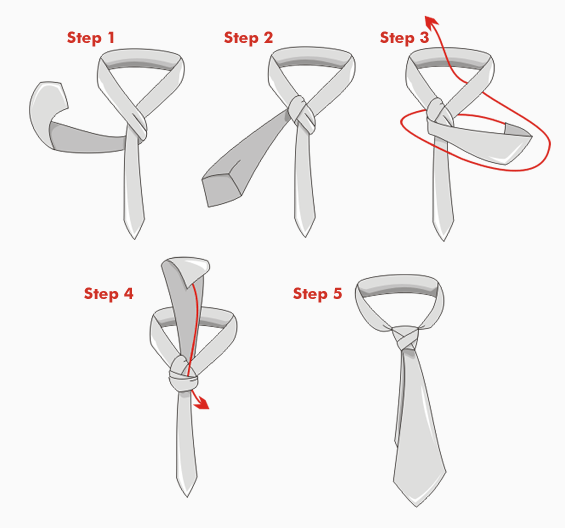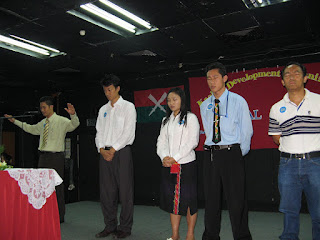
Source: http://fiftyrefugees.wordpress.com/
Awng Seng’s (not his real name) story is not something that is easy to listen to. Running away from the military in Myanmar when he was only 21, he was sold to a fishing boat in Thailand, where for 2 years he was a slave, watching others like him being murdered in cold blood.
I have heard stories of men being sold to fishing boats before, but I have never heard anything in detail, and this story left me numb.
“The agent told us that work in Malaysia was difficult, so he offered me work on a Thai fishing boat, telling me that it was only going to be for around 2-3 months, and that they would pay me 3,000 Bhat a month. Trusting him, I accepted“.
Being a farmer, he had never worked on a boat before, so it was difficult for him to adapt to the sea. He didn’t speak the language as well, so that made it even more difficult.
“They beat me every time I made a mistake. They beat me with their hands and feet. They beat me with metal bars, about this size and this size…” showing that it was the length of his hand, and then his arm. “They would throw pieces of chain at me”, he said. Sometimes there would be blood all over”.
“There were 5 of us slaves - two others from Thailand and another three from Cambodia.They killed 3 of us. They killed the first person about a month after we set out to sea. This guy had bought some whiskey at the port, and when he ran out of alcohol, he couldn’t work as hard. They were really angry. So they took him to the front of the boat and beat him every day. He was very afraid. One day, after beating him up, they threw him overboard.But he could swim a bit, so he swam back to the ship. They called to him. “Come, come” they said. So he swam back, but when he tried to board the ship, they beat him with spades, so he fell down into the water. Again he swam and he tried to climb up, but this time they beat him with hooks. There was blood all over. He fell back into the sea and was unconscious for about 15 minutes, just floating. The third time, he swam back but dare not climb up, so he was just clinging to the fishing net by the side of the boat. This was when one of them climbed down and stabbed him in the throat with a small knife“.
“They killed his friend too. He was a bit older than us and I think he couldn’t work as hard as they wanted him too. They called him, and when he went, they told him that this would happen to him if he didn’t work hard. When he looked over the edge of the boat to see what happend to his friend, they struck the back of his head with an axe. He fell into the sea, dead“.
“I was so afraid. I thought I would be killed like them. I thought I would die“.
Awng Seng would work hauling up the fish, and then seperating them into different baskets. The work was non-stop, 24 hours. “We would work for about 4 hours each time the net came up, and then we would be able to rest for 2-3 hours until the net came up again, and it would be like that over and over and over. Twice a month, a supply ship would come by and we would unload the fish and load up supplies and ice. When ice came, we would work all night to break it up into small pieces”.
“They killed the 3rd person when we were sorting fish one day, about 2 to 3 months later.They called this person and told him to jump into the sea and swim. This guy couldn’t swim, so they told him that they would tie a string around his waist and pull him up if he sank. We all smiled. We thought it was a joke. We thought they were teasing him. But later, we found his dead body tied to a rope by the side of the boat. Every time a wave came his body would lift out of the water and then it would come crashing down again. I think he died like this“.
What was the worst thing that happened during this time, I asked, fully expecting him to tell further stories of torture and abuse. But he didn’t. “The worst thing was that they did not value us as humans. Our lives meant nothing to them. We could fight, and they would let us kill each other, but if we dropped a fish during the fight, they would beat us for that“. In other words, their lives were valued less than the fish.
To Awng Seng, then, there was no hope. No future. “There would be only ocean as far as the eye can see during the day, and only stars at night“. They would be no escape. At 21, he was, in his own words, just “waiting for death to come“. “We never came back to land.Even if there was a problem with the boat, the supply ship would come to fix it. We never saw land. In the supply boat, there were others like me, and they have been slaves for 6, 8 years. All I could do was pray to God for help”.
It seems, one day, God answered his prayers. Almost 2 years later, the engine broke down so completely that the supply ship couldn’t fix it, so they towed the boat back to port. “I could speak a little bit of Thai by then, so they gave me some money and asked me to buy them some cigarettes. I didn’t. I went to a phone booth and I called my friend in Kuala Lumpur. I remembered his number. I never forgot it. It was in my head all the time. I told him everything that happened to me. I asked him to help me. My friend then called an agent at the port. After about an hour, he came to pick me up and took me to his house. The next day, he put me in the boot of a car and crossed over into Malaysia where the agent put me on a bus to Kuala Lumpur. My friend was waiting for me at the bus stop and found me work at the coffee shop he was working at“.
Awng Seng is one of the lucky ones. He still works at this coffee shop serving rice and stays with his friend in a small room rented by the shop owner. He gets two days off a month, and works from 6 in the morning to 2.30 in the afternoon. Every day, after work, he goes straight back to his room. After getting into a few run-ins with the police, he dare not go anywhere else. Awng Seng hopes one day to be registered with the UNHCR, but worries that they won’t believe him, as his scars are slowly fading. I asked him what his plans are for the future. He told me that he wanted to study English and computer. “I only went to school until standard 6 (12 years old) but I stopped because we didn’t have enough money back then. I had to work in my field planting corn and hill rice.But I never once failed in my exams“.
Why English and computers, I asked? “Computers because it seems everything is computerised now, and English because all the books are in English, so I want to learn English because I want to study all the books“.
“I want to be successful one day“, Awng Seng says. What does success mean to you, I ask? Awng Seng stays silent for a while, thinking. “There are two aspects to being successful”, he says. “One is education, and the other one is finance. With money, I can help others get education, so they too can be successful“.
Asked if he missed anything in Myanmar, he told me that he misses his mother very much. “Especially when I get sick, because then there is nobody to take care of me“. It struck me then, that even through he went through hell and survived, Awng Seng is still alone, still young, and still some mother’s little boy.




















+U14.JPG)
+U14.JPG)
+U10.JPG)





















